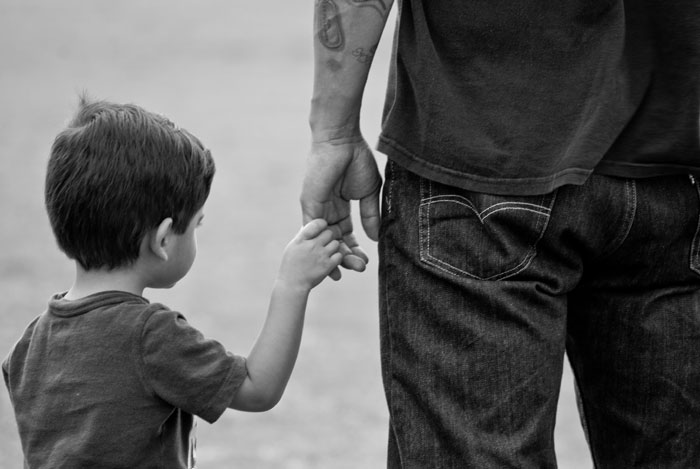
Do you experience deep discomfort or awkwardness with the expression of feelings to and from others or self?
Do you feel chronic sense of emptiness or emotional numbness that comes and goes by?
Aggression, anxiety, depression or alcohol abuse has become an integral part of your life?
If the answer to the above questions is ‘Yes’, then somewhere you are a victim of Emotional Neglect. Emotional Neglect can be defined as an affiliation pattern in which an individual’s needs for affection are constantly disregarded, ignored or unappreciated by parents of significant others. In a child, this type of neglect involves inattentiveness to his emotional and developmental needs. Childhood Emotional Neglect is a term coined by psychologist Dr, Jonice Webb. Most of the time this type of experience goes unnoticed and most people term their childhood experience as “good” and it comes into light only on closer examination.
Your childhood experiences play a very important role in shaping your present self. Children rely heavily on their parents in their childhood for meeting their emotional and physical needs. Physical abuse can leave physical scars, while emotional abuse leave psychic ones. Significant damage is done knowingly or unknowingly by parents when they fail to meet their children’s needs. Childhood Emotional Neglect can be hard to identify because it’s not what happened in your childhood but what was missing at that time. It does not leave a scar or bruise but a deep mental impact which is generally hurtful and confusing for the children.
People raised up in neglectful families are emotionally disconnected from one another, behaving as if they were living on different planets. Parents may have trouble understanding their children’s need for love, affection, closeness, and support or they may feel too flabbergasted or helpless to meet these needs on regular basis. Neglectful parents usually come from families in which, as children, they were ignored or neglected by their parents. So it is like a never ending circle until someone in the family realises what’s actually wrong and makes conscious efforts to treat it.
What does Childhood Emotional Neglect look like?
Imagine coming home with a trophy in your hand which you won in a competition or might come home upset about not winning that trophy, and having no one to share the experience with. You tried talking to your mom about it, but she shushed you away saying she is too busy to listen to petty talks. What about when you grandfather died and your father told you “boys don’t cry” and no one helped you process the grief. When this happens repeatedly, you feel unloved and unseen. Eventually this becomes the foundation of a child’s identity and shapes their future.
Forced to rely on themselves for support, afraid of their own dependency needs and reluctant to admit their pain these children eventually become detached parents. They become highly indecisive about and unable to satisfy their children’s needs, particularly when their children are hurting, crying or looking for emotional support. They may feel so frustrated and resentful about having children and may end up completely ignoring them. They eventually ignore everyone and shun away intimacy in relationships.
All this can have devastating consequences including failure to thrive, hyperactivity, aggression, depression, low self-esteem, substance abuse, or may even run away from home. These are just a few of emotional disorders which are most commonly seen in emotionally neglected children. Severe cases of neglect are generally easy to spot (e.g., when the child’s development is delayed or shows visible signs of failure to thrive) but more subtle cases are harder to detect. Many adults who experienced emotional neglect look like they have got it all together on the outside. They are a perfect example of a successful and happy family but there is sense of never ending emptiness, not fitting in and that they are different, but always console themselves that there isn’t anything wrong. Emotional neglect is not the same as child abuse because it is often accidental. While some parents might intentionally ignore their children’s needs, others may fail to notice or respond to their child’s emotional needs. Your parents could have tried their best to be good parents but sometimes may have still neglected your emotional needs.
Some phrases that may be familiar to you if you were a victim of childhood emotional neglect are:
1. It wasn’t that bad.
2. Stop overreacting and grow up.
3. It’s not worth getting upset about.
Some signs that you have been victim of Childhood Emotional Neglect:
1. You have low self-esteem.
2. You are extra sensitive to rejection and fear abandonment.
3. You tend to blame yourself for failures in life or feel unfulfilled even when you are successful.
4. You are harder on yourself than you would be even on a stranger.
5. You lack self-compassion and understanding.
6. You are afraid to rely on others and become cold to any kind of help or love offered by others.
7. It’s difficult for you to identify your strengths and weaknesses.
8. Difficulty trusting others.
9. You may give up on school, job or other life goals.
10. You tend to be perfectionist in everything.
Emotional abuse doesn’t always lead to physical violence, however almost all physical and sexual violence does include emotional abuse. It is a powerful tool used by one person to maintain a feeling of power and control over another person. It’s important to recognise emotional abuse especially related to children at an early age because the longer abuse continues, the more harmful it can be. Consult a doctor if you feel you are suffering from one or more than one symptom from above.
Your email address will not be published. Required fields are marked *
29 Jan, 2024
29 Jan, 2024
29 Jan, 2024
25 Jan, 2024